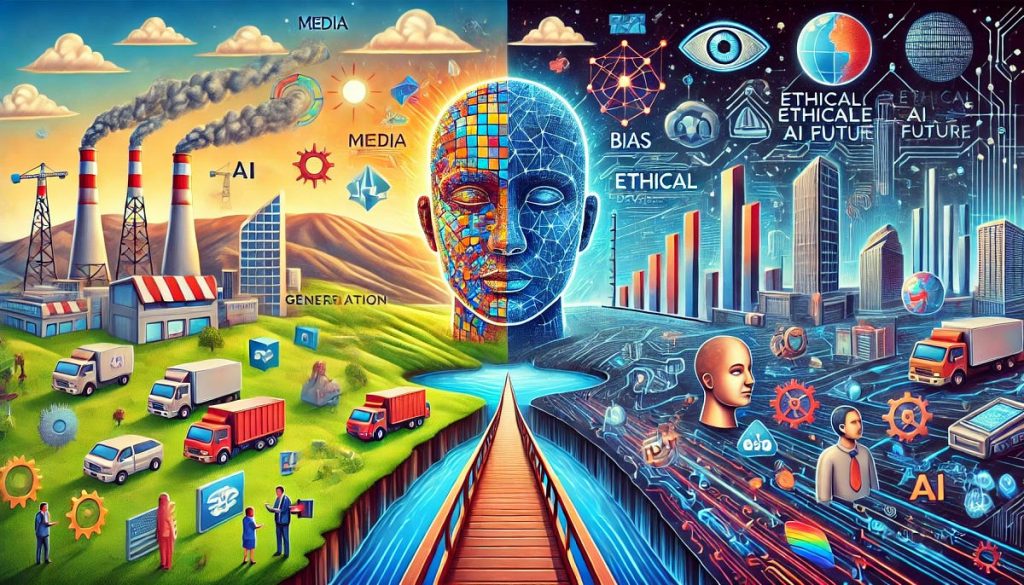
The Ethical and Societal Challenges of Generative AI
Author: Gary A. Fowler | Source: Medium | Read the full article
Generative AI is changing the way we create content and interact with technology, but it also raises important ethical and societal issues. The article discusses how this technology can produce convincing fake content, such as deepfake videos and misleading news articles, which can mislead people and sway public opinion. To combat these problems, social media platforms are developing systems to detect and flag false information, while researchers are working on methods to identify AI-generated content.
Another major concern is the potential for bias in AI systems. Since these systems learn from large datasets, they can inadvertently perpetuate existing societal biases if not carefully managed. The article highlights efforts to create more diverse training data and improve algorithms to reduce bias, ensuring that AI systems are fair and equitable.
Privacy is also a significant issue, as generative AI requires extensive data to function effectively. Policymakers are advocating for stronger data protection laws and clearer consent processes to safeguard user information. The article emphasizes the need for collaboration among researchers, tech companies, and policymakers to establish ethical guidelines for AI development, ensuring that the benefits of this technology are realized while minimizing its risks.

![Elon Musk's xAI Introduces Image Generation API to Expand AI Capabilities [English] Elon Musk's xAI Introduces Image Generation API to Expand AI Capabilities [English]](https://peeperfrog.com/wp-content/uploads/2025/03/2025-03-19T201104Z8597749008file-150x150.webp)
![Artificial intelligence is revolutionizing the marketing strategies of the future [German]. Artificial intelligence is revolutionizing the marketing strategies of the future [German].](https://peeperfrog.com/wp-content/uploads/2025/03/2025-03-13T225849Z8589196605file-150x150.jpeg)